PRIVATIZATION ROBBERY IN TC: While the workers were in the trenches, the authorities were getting rich
Povezani članci
- Russians seek refuge in Srpska: The Burlakovs open coal mine
- Request to suspend IPA III funding to Republika Srpska
- VLASENICA The infernal incinerator plan failed due to Mića Kraljević’s conflict with the Russians
- After publishing the text on SPIN Info, the municipality of Pale signed the contract and sent a reply
- THE BEAUTY OF VICES: Đajić, Čomić, Petrović and Aljović on the electoral lists, although in a conflict of interest
- Ilidža: From the fight against construction chaos to the legalization of crime by the previous government
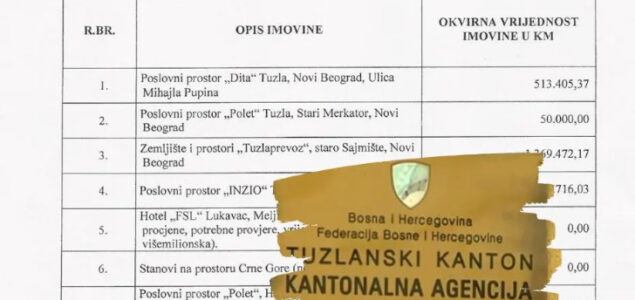
Photo: Interview.ba
The TC Privatization Agency claims that it was not done strategically and systematically, so billions of assets are at stake. The workers are convinced: It is a combination of politics and crime
Writes: Edin SKOKIĆ
The Tuzla Canton has valuable assets in Croatia, Serbia, Slovenia, and Montenegro.
But for now, we can only write texts about it. Because the numerous authorities of this canton had so much time to start things from a deadlock and demand that which belongs to them.
Obviously, there was more work to be done, so in recent years the Cantonal Privatization Agency of TC started the real work. First, identifying assets in the countries created by the breakup of Yugoslavia.
Progress has been made, court cases have been initiated, and the outcomes are, at least for now, uncertain because there are also complex administrative-bureaucratic apparatuses and courts in the environment that are not favourable towards entities from abroad.
Mystery or robbery
The process of selling social assets began in 1990, with the adoption of the Law on Social Capital, or “Markovićeva privatizacija” (translation: Marković’s Privatization). The reforms of Ante Marković, then president of the Federal Executive Council of Yugoslavia, included the internal allocation of shares to workers who became company owners. The reforms were stopped by the war!
In post-war Bosnia and Herzegovina, the first laws on privatization were passed in 1997. A year later, the Office of the High Representative in Bosnia and Herzegovina imposed a law requiring the privatization of state capital in the territory of both entities of Bosnia and Herzegovina. After that, the privatization process began. But decades later, there are many mysteries related to the privatization of state capital. Due to numerous frauds, failed companies, and buying valuable objects, production, and property for small amounts of money, the entire process was often called – robbery!
The Tuzla Basin in Yugoslavia was known as one of the most industrially developed. Especially in the field of mining, energy, and chemical industry.
The privatization process in the Tuzla Canton was carried out by the Cantonal Privatization Agency. The main activity of the Cantonal Agency for Privatization TC is the sale of property. What has been started in recent years are only small steps. And even at first glance, it is clear that the privatization process was started without a strategy and vision.
Out-of-court settlement
This is confirmed by the fact that the earthquake that hit Zagreb two years ago revealed that the Tuzla Canton owns an apartment in Zagreb!
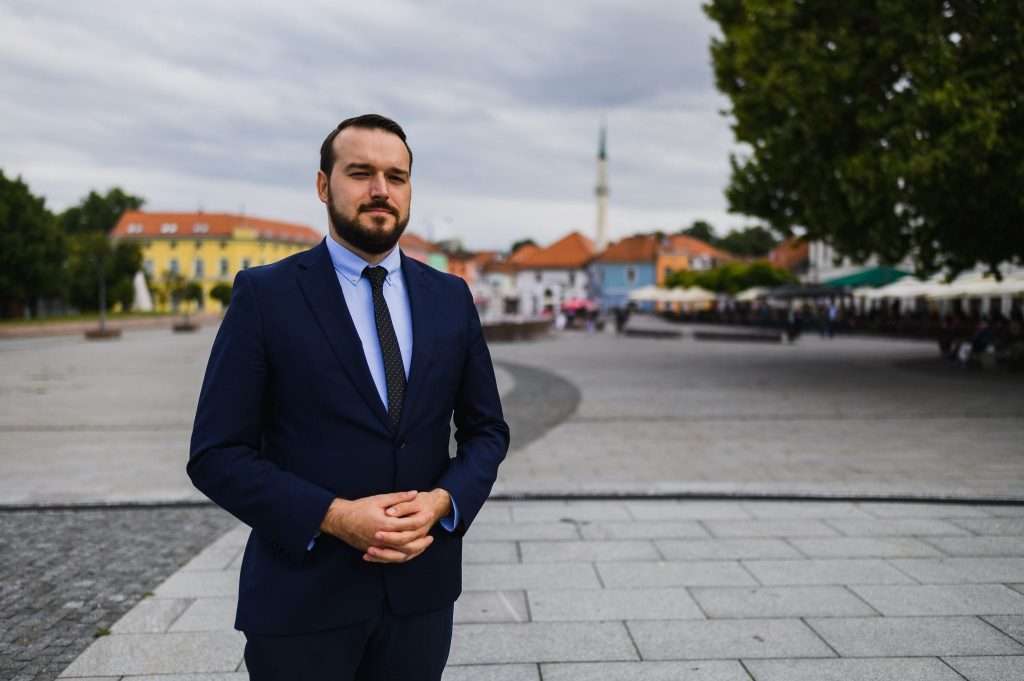
Čavalić: This is a very unorganized area
– At the end of 2020, we were contacted by a lawyer from Zagreb, who wanted to apply for funds from European funds to rehabilitate the apartment after the earthquake. It turned out that this apartment was “managed” at the Lukavac Salt Mine. But it is even more interesting that the Lukavac Salt Mine never existed. This means that there were some strange circumstances in the ownership registration. Neither the Cantonal Privatization Agency nor the Lukavac Soda Factory had any documentation about that apartment – Admir Čavalić, director of the Cantonal Privatization Agency, tells us.
Čavalić points out that this example alone shows that work was not done strategically and systematically in the past and that such examples are recurrences of such “work” (idleness) in the past.
– This is a very unorganized area. Perhaps it would be best to form a specialized body that would deal only with these cases or increase the capacity of the Cantonal Privatization Agency. In this case, we did not accept an out-of-court settlement and we will see how the whole case will end – he adds.
We’ve been robbed!
Sakib Kopić, the president of the TC Solidarity Union, is leading the decades-long fight against criminal privatization, he believes that the privatization robbery was planned back in 1994 when the workers were in the trenches defending the state.
– Out of all the states that were created by the breakup of Yugoslavia, only Bosnia and Herzegovina returned property to other republics. On the other hand, we have been robbed because we cannot return our property even in Croatia, Serbia, Slovenia… – he says.
He points out that this is about billions’ worth of marks.
– It is about the connection of our politicians who were in power and did not ask for the return of that property. On the contrary, they saw themselves in behind-the-scenes actions, and that’s why they put assets in the so-called passive sub-balance sheet, and this is later forgotten and then the assets are stolen away from the public eye. Politicians and tycoons invented the passive sub-balance, we didn’t invent it. It was done consciously – adds Kopić.
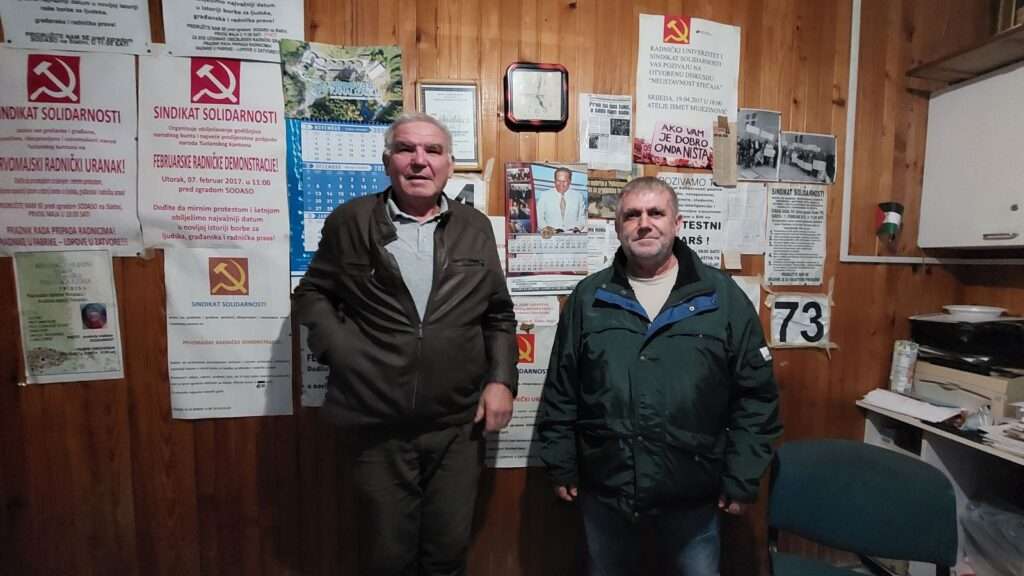
Tanović and Kopić: They indicate illegality
Thus, he cites TTU as an example.
– No one knows that “TTU” has 40 million dollars in clearing debt, no one knows that these assets entered the sub-balance sheet and when a man from “TTU” started to talk about it, they told him that he could lose his head. Forty-something million dollars. They pushed the company into bankruptcy and who mentions those 40 million dollars today. This is the same as in the case in Montenegro. Who remembers after 20 years what was done. Everything was planned, and when it comes to privatization, they invented small and large privatization, and in order to smear our eyes, they gave us certificates with which we bought apartments. We bought apartments, and they bought companies. Everything was done deliberately, while we were in the trenches, hey, in 1994, while we were defending ourselves from the aggressors, they wanted privatization. They knew everything and they brought us down to the beggar’s stick – says Kopić.
Apartments in Slovenia
From Croatia, we then go to Slovenia, where the problem with the identification of the Tuzla Canton property is specific because there is simply no documentation.
Three apartments have been identified, but without valid documentation, it will be difficult to get to them. The brown coal mine Banovići claims to be the owner of a 39-square-meter apartment in Trbovlje at Partizanska C16, the Mining Institute Tuzla has an apartment in Koper, and the Tuzla Kreka Mine in Ljubljana.
Initiated legal proceedings
Tuzla companies had most of their assets in Serbia.
The Cantonal Privatization Agency has hired a team of lawyers, and court proceedings have been initiated. Optimists expect favourable outcomes. All property belongs to the Tuzla Canton because in the process of privatization it remained in the passive sub-balance sheet, in other words, it was not privatized and as such could not be sold.
In Belgrade, for example, near the Beograd na vodi complex, the Tuzla Canton has a plot of 1,432 square meters with an estimated value of 1.3 million KM. Back in 1968, the company “Tuzlaprevoz” was registered as a property, and there are even buildings that were used. Existentially endangered citizens currently live near that location.
– There are indications that the Staro sajmište (Old Fairground) Memorial Center will be built in that area. If they start construction, we doubt that the problem will not have to be resolved. We should get the right to own it so that we can sell it because our main role is to sell property – says Čavalić.
Millions of assets in Serbia
In Serbia, business premises and facilities have been identified in the following cities: JP “Spreča” apartment in Novi Sad, “Aida” Tuzla stores in Belgrade, Kraljevo and Kragujevac, “Tuzlaprevoz” land in New Belgrade, “Rudar” Tuzla three apartments in Belgrade, Čačak and Niš, “Šipad Partizan” apartment in Novi Sad, “Igmin komerc” business premises in Belgrade, “Sodaso Holding” two apartments in Belgrade, “KHK Lukavac” two apartments in Belgrade and one in Užice, “Institute for Protection and Education ” office building in Leskovac, “TDI Tuzla” apartment in New Belgrade, “Integra engineering” office space in Belgrade, “Tehnograd visokogradnja Tuzla” office buildings in Belgrade, Salt Mine “Tušanj” apartment in Belgrade, Rudnik Đurđevil apartment in Belgrade, ” Polet Tuzla” apartment in Belgrade and Pančevo and office space in New Belgrade, Rudnik Kreka Tuzla six apartments in Belgrade, apartment in Subotica and Loznica, office spaces in Belgrade and Novi Sad, Fabrika soda Lukavac apartment in Belgrade and “Dita” Tuzla office space and garage in Belgrade.
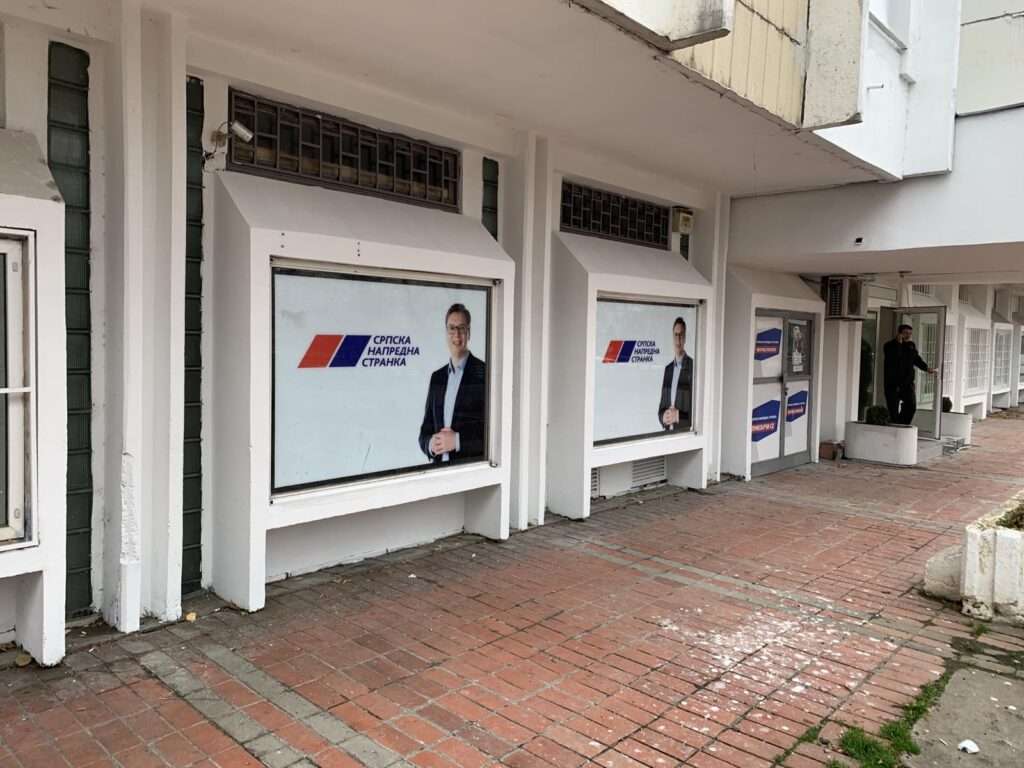
Belgrade: DITE space
– In December 2020, we went on a tour of the mentioned business premises in Belgrade. The office of the ruling Serbian Progressive Party (SNS) is currently located at Mihajlo Pupin’s address in the office space “Dite”. The estimated value is 513,405 KM. Probably none of the ordinary citizens know that it is the property of the Tuzla Canton. Retroactive claims are not possible, but it is not an uncommon practice for premises and apartments to be used without property-legal relations being resolved. Maybe it’s not bad that the premises were used because they were also maintained. The alternative is bad because the unused spaces are neglected, fenced off, and collapsing… Millions of dollars in damages were caused because the property was not taken care of – Čavalić points out.
Who sold the space?
In Montenegro, it is the most difficult to identify the property, and the fate of that property is also under a big question mark. Business premises in Herceg Novi, measuring 88 square meters, were sold illegally in 2000 or 2001, and this is evident in the documents that were adopted at the session of the Government of TC.
In the explanation it is written: It was established that the company sold after privatization.
– The entire privatization is criminal. The authorities did this back in 1994, while the workers were in the trenches defending the country, to rob us after the war. There is that famous passive sub-balance that was left in other countries so that today someone would sell the property without knowing whose it is. The property remained in the passive sub-balance sheet, it has been managed that way for 20 years, and today you do not know whose property it is. Privatization is over, there is a passive sub-balance, you have no one in the sub-balance and, for example, I am the owner of the property, I am no longer among the living, no one transferred that property and then someone came and sold my property – says Enes Tanović, vice president of the TC Solidarity Union.
There is no documentation
Therefore, the company Polet d.o.o. Tuzla was privatized, and the assets in Montenegro remained in the passive sub-balance sheet and were not subject to privatization. It has never been determined who sold the office space in Herceg Novi on the ground floor of the former Health Center, but it is clear that there are elements of corrupt activities between individuals and/or groups in conjunction with the lawyers who completed the sale and purchase process.
– I am sceptical when it comes to property in Montenegro. I do not believe that politics is involved in the story. Montenegro is attractive because of the sea coast and individuals were selling in the early 2000s. There are valid sales contracts, but… The company that after privatization sold assets from the passive sub-balance sheet should not have done so. Competent institutions have been informed about this, but I am sceptical about the fate of this property as well as the property in Slovenia because we have no documentation and it is difficult to identify the property – concludes Čavalić, director of the Cantonal Privatization Agency TC.
In Croatia, assets have been identified, such as hotel accommodation, in locations in Podgora, Gradac, and Ploče, as well as apartments and business premises in Zagreb and Split.
Who was the broker?
Properties, such as the Hotel “Đuro Salaj” in Gradac, have been returned to the ownership of Banovići and Đurđevik Brown Coal Mines and are leased.
– We have a case in “Polihem” Tuzla, where assets that should not have been in the sub-balance went to the sub-balance, so that in the end, someone traded with those assets and “Polihem” lost those assets. Tomorrow, such property will be privatised as a sub-balance, but it is not a sub-balance because it is the property of “Polychem”. All this is done by our tycoons, our criminals, it is a combination of politics and crime and no one investigates it, none of the investigative bodies deal with the obvious crime and corruption – concludes Tanović.
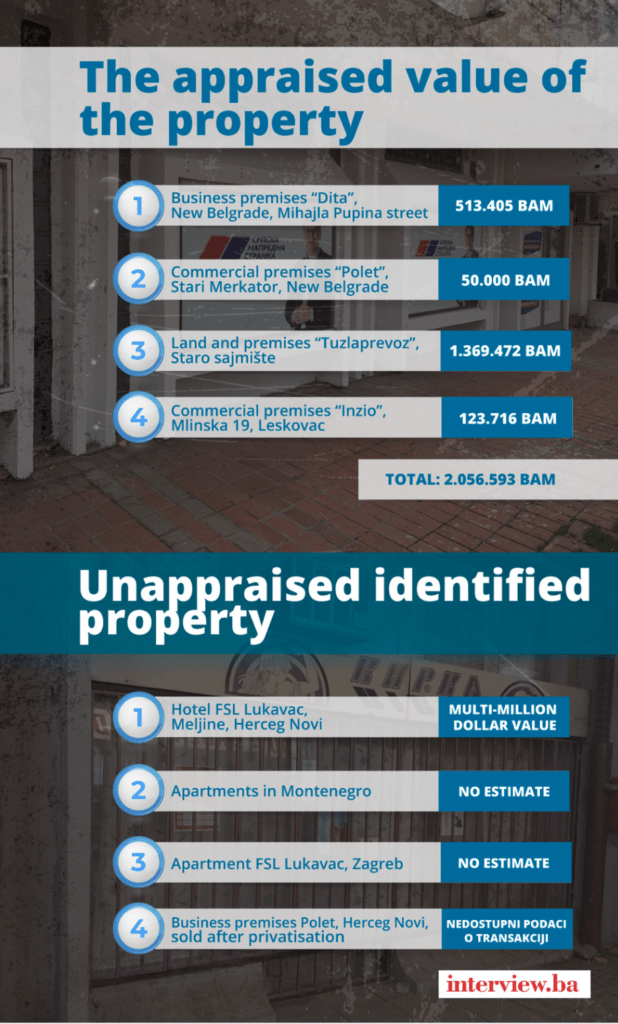


 ENG
ENG





























